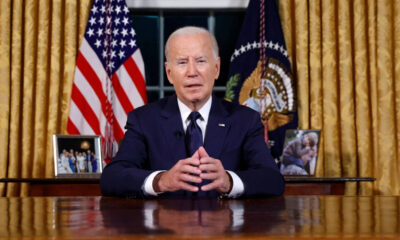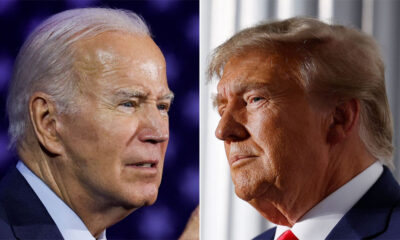International
Biden vows to respect guilty verdict in son’s gun trial
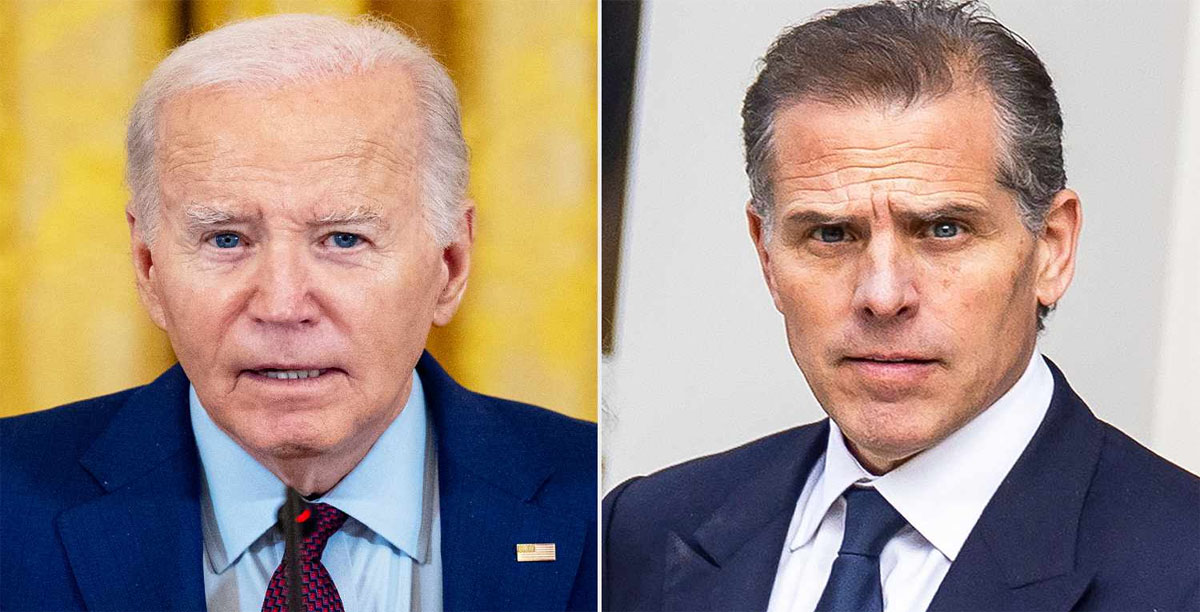
Biden vows to respect guilty verdict in son’s gun trial
US President Joe Biden has said he will respect a jury’s decision to find his son guilty of gun crimes, after a week-long trial that laid bare a tumultuous time for the family.
The 12-person jury found Hunter Biden, 54, guilty of lying about his drug use on a form while purchasing a handgun in 2018. He faces possible jail time following the verdict, which marked the first criminal prosecution of a sitting president’s child.
His conviction on all three felony counts comes as President Biden campaigns for re-election in November, and less than two weeks after his election rival Donald Trump was himself convicted of a crime in New York.
While President Biden did not attend the trial in Delaware, many family members including First Lady Jill Biden did so regularly. Hunter Biden’s wife, sister and uncle were all present at times to support him during proceedings.
President Biden flew to Wilmington, Delaware, after the verdict where he greeted and hugged his son on the tarmac.
“I am the president, but I am also a dad. Jill and I love our son, and we are so proud of the man he is today,” he said in a statement. Mr Biden added that he would “accept the outcome of this case and… continue to respect the judicial process as Hunter considers an appeal”.
President Biden earlier ruled out pardoning his son, whose trial aired embarrassing details as prosecutors sought to show he was using crack cocaine at the time he bought the gun.
Jurors heard from his ex-wife, Kathleen Buhle, and a former girlfriend, Zoe Kestan, who described frequent drug binges that took a toll on his friends and family. Text messages detailing his addiction and photographs, some showing a half-naked Hunter Biden, were also shown to the court.
READ ALSO:
- Elon Musk drops lawsuit accusing OpenAI of betraying founding mission
- EXPOSED: NFF may fire Finidi George before S’Eagles next match
- Niger community gives terrorists N2m, six motorbikes for release of 40 abductees
The verdict on Tuesday prompted instant political reaction, including from Republicans in Congress who have spent years investigating Hunter Biden’s behaviour and business ties.
James Comer, the Republican chair of the House oversight committee, said it marked a “step toward accountability”, but added that “everyone involved” in what he called the “Bidens’ corrupt influence peddling schemes” should be investigated.
A statement from the Trump campaign, meanwhile, said the trial had “been nothing more than a distraction from the real crimes of the Biden Crime Family”. The former president has often used that description of the family on the campaign trail, referring to allegations of improper conduct made against the president and his son by Republicans.
Democrats in Congress accused their Republican colleagues of hypocrisy, and praised the US justice system.
“Compare and contrast the difference in reaction between the Republicans and the Democrats,” Maryland Democrat Jamie Raskin said in a hearing.
Referring to Trump’s criminal conviction, he said: “The Republicans are attacking our entire system of justice and the rule of law because they don’t like the way one case came out, whereas the son of the president of the United States is prosecuted and I don’t hear a single Democrat crying foul.”
Meanwhile, several jurors who convicted Hunter Biden have said politics was not a factor in their decision. “I was never thinking of President Joe Biden,” one juror told the BBC.
“Out of all the jurors, nobody mentioned anything about political motivations,” he added.
Aides to President Biden have told US news outlets that the trial and verdict have taken an emotional toll on Mr Biden, who has been closely watching the case.
Politico reported that Mr Biden had been “consumed with the trial for weeks” and asked family members for updates while he was on a trip to France for D-Day anniversary events.
The outlet also said Mr Biden has at times felt guilty about the spotlight that has been placed on his son, and believes his political career has contributed to his son’s legal problems.
According to the Washington Post, the president’s advisers have often been reluctant to speak to him about his son and some have tried to limit Hunter Biden’s public appearances.
Hunter Biden will be sentenced at some point in the next 120 days, but the judge overseeing the case has not set a date for the hearing. He faces up to 25 years in prison, but legal experts say it is highly unlikely the eventual sentence will be close to that given he is a first time, non-violent offender.
His legal issues are set to continue throughout the year, and throughout his father’s election campaign. In September, he will face trial in California on charges of failing to pay $1.4m (£1.1m) in income taxes.
If convicted in that case, Hunter Biden could face up to 17 years in prison.
Biden vows to respect guilty verdict in son’s gun trial
BBC
International
Israeli Airstrikes Kill 12 in Gaza as Violence Persists Despite Ceasefire
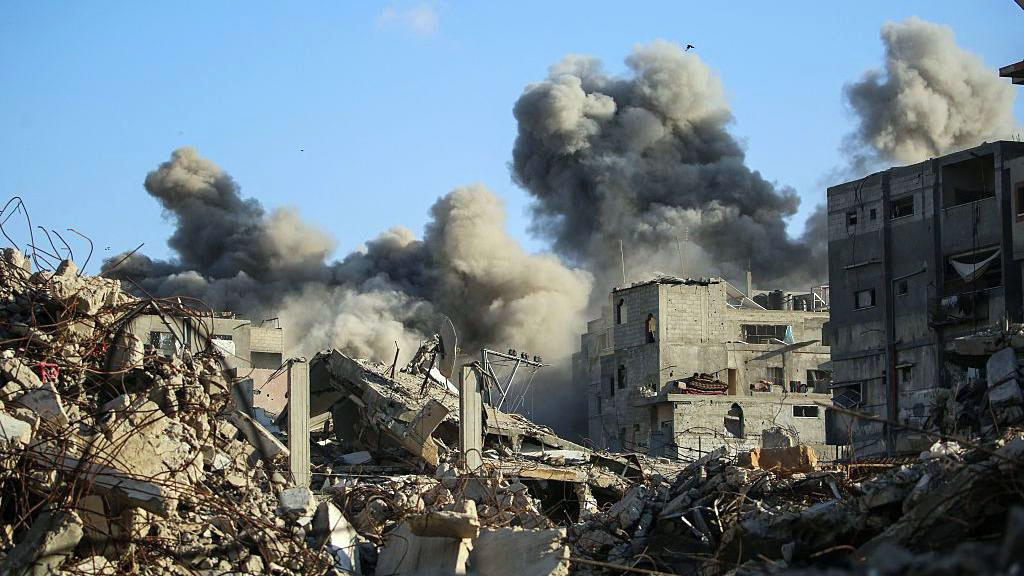
Israeli Airstrikes Kill 12 in Gaza as Violence Persists Despite Ceasefire
At least 12 Palestinians have been killed in Israeli airstrikes across the Gaza Strip, the territory’s civil defence agency reported on Sunday, marking one of the deadliest days since a fragile ceasefire was implemented. The strikes hit multiple areas, including Jabalia refugee camp in northern Gaza and the southern city of Khan Younis, leaving several others injured.
The Gaza Civil Defence, responsible for rescue and emergency operations under Hamas, said one airstrike struck a tent sheltering displaced civilians in Jabalia, killing at least five people and wounding others. Another strike in Khan Younis also claimed five lives, while additional shelling in Beit Lahia and western Gaza City caused further casualties. Local authorities said most victims were civilians, including families displaced by previous attacks.
READ ALSO:
- FBI Probe Continues as Ex‑Church Minister Who Confessed to Child Abuse Remains Free
- Presidency Dismisses El-Rufai’s Thallium Claim as Diversion From N432bn Probe
- Ghana Moves to Extradite Russian Man Over Secret Sex Video Scandal
The Israel Defence Forces (IDF) said its operations targeted armed militants and underground infrastructure allegedly used to launch attacks, describing the strikes as a response to ceasefire violations. Palestinian authorities condemned the strikes as a massacre and a breach of the truce, while international observers expressed concern over the continuing civilian casualties.
Since the U.S.-brokered ceasefire in October 2023, tensions in Gaza have remained high, with sporadic clashes and violations on both sides. Gaza health authorities report that over 600 Palestinians have been killed and more than 1,600 injured by Israeli strikes since the truce took effect. Humanitarian organisations warn that repeated airstrikes have devastated infrastructure, leaving displaced families vulnerable and worsening living conditions.
International observers note that the ongoing violence threatens reconstruction efforts and regional stability. With limited access for media and aid agencies, verifying casualty figures remains difficult, though reports consistently highlight the severe impact on civilians and displaced families.
The Gaza civil defence called on residents to stay vigilant, avoid military targets, and seek safety as authorities continue to respond to emergency situations across the territory. The situation underscores the fragility of the ceasefire and the urgent need for renewed diplomatic efforts to prevent further civilian casualties.
Israeli Airstrikes Kill 12 in Gaza as Violence Persists Despite Ceasefire
International
FBI Probe Continues as Ex‑Church Minister Who Confessed to Child Abuse Remains Free
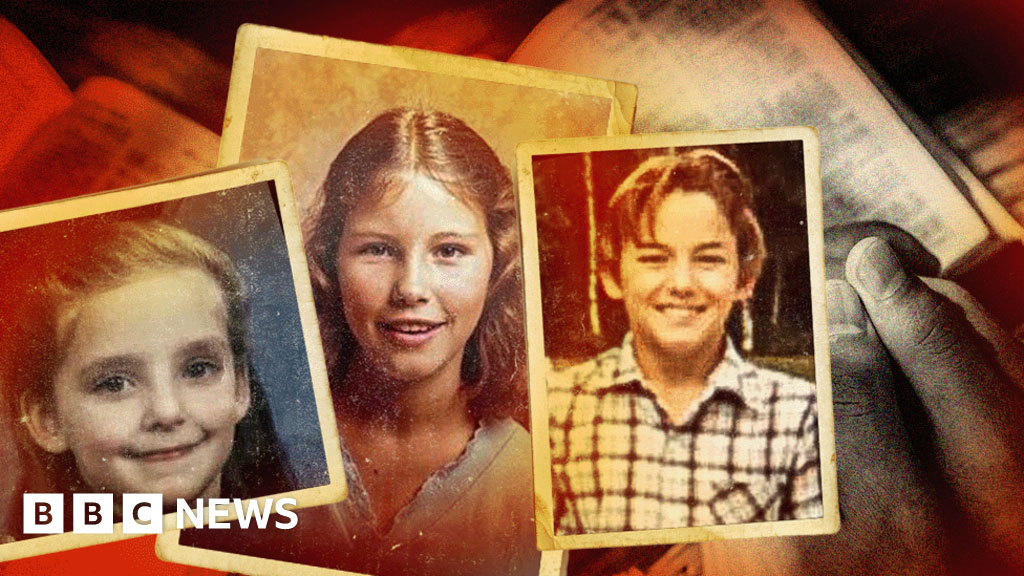
FBI Probe Continues as Ex‑Church Minister Who Confessed to Child Abuse Remains Free
An ex‑minister of a secretive Christian group who publicly admitted to child sexual abuse during a BBC interview remains free more than two years later, despite ongoing investigations by the Federal Bureau of Investigation (FBI) and renewed allegations from other victims. The man, Robert Corfield, once served as a minister in a shadowy church commonly known as The Truth or the Two by Twos — a global network of itinerant ministers with no official headquarters or widely recognised name. In early 2024, Corfield told the BBC that he had sexually abused a boy named Michael Havet for six years starting in the 1980s when Havet was 12 years old, in Saskatchewan, Canada.
Corfield’s admission was part of a larger wave of revelations about abuse in the Two by Twos community. His name was among more than 1,100 reported to a hotline set up to document cases of sexual abuse within the church. About a month after the BBC’s initial investigation, the FBI launched a probe into allegations of child sexual abuse within the group. Although Corfield spoke to FBI agents in late 2024 or early 2025, saying he “responded with the truth,” he has not been contacted by authorities since that visit and remains at liberty in the U.S. state of Montana. When asked if he fears arrest, Corfield acknowledged that “there is that possibility.”
READ ALSO:
- Presidency Dismisses El-Rufai’s Thallium Claim as Diversion From N432bn Probe
- Ghana Moves to Extradite Russian Man Over Secret Sex Video Scandal
- Residents Flee as Gunmen Launch Fresh Attack on Kwara Community
Authorities, including the Royal Canadian Mounted Police (RCMP), have also been involved. The RCMP confirmed it investigated historic sexual assaults that occurred in the 1980s and sent files to Crown prosecutors for assessment, while the Saskatchewan Ministry of Justice noted it does not comment on cases currently under investigation. A separate alleged victim, identified only as Edward, came forward in 2025 claiming he was sexually assaulted by Corfield in 1974 at age 11, well before Corfield’s abuse of Michael. Edward also described alleged grooming behaviours, adding to concerns about Corfield’s past conduct.
Corfield’s case is part of broader allegations of abuse in the Two by Twos community, which some survivors and investigators describe as insular and resistant to external scrutiny. Advocacy groups have reported hundreds of alleged historical abusers connected to the sect globally. In the United States, a former elder of the Two by Twos was sentenced to 120 years in prison for possessing child sexual abuse material, highlighting that criminal accountability is possible when prosecutions occur. Survivors and advocates have criticised the church leadership’s historical handling of abuse allegations, alleging that serious complaints were ignored or covered up. Former members say the group’s structure — with ministers often hosted in private homes and an emphasis on internal solutions — made it easier for abuse to go unreported for decades.
While investigators continue their work, Corfield’s freedom has drawn sharp criticism from survivors like Michael, who has expressed confusion and frustration at the slow pace of legal action. Advocates have urged authorities in both the United States and Canada to urgently pursue all leads, not only against individual perpetrators but also over potential institutional failures within the church. Support networks for survivors have also grown online and through advocacy organisations, offering counselling and community resources for victims of the alleged abuse. Despite these efforts, many survivors say justice remains elusive more than two years after the minister’s public confession.
FBI Probe Continues as Ex‑Church Minister Who Confessed to Child Abuse Remains Free
International
Trump Halts Minnesota Immigration Crackdown After Fatal Shootings, Protests

Trump Halts Minnesota Immigration Crackdown After Fatal Shootings, Protests
The Trump administration has officially halted Operation Metro Surge, a controversial immigration enforcement operation in Minnesota, following widespread protests, political backlash, and the deaths of two U.S. citizens. The decision was announced by Tom Homan, the U.S. “border czar,” who confirmed that President Donald Trump approved ending the monthslong crackdown.
Operation Metro Surge, launched in December 2025, focused on the Minneapolis–St. Paul metropolitan area, deploying nearly 3,000 federal immigration officers at its peak. The operation aimed to detain undocumented immigrants, which the Department of Homeland Security (DHS) described as targeting “criminal illegal aliens.” However, reports indicate that many detainees had no criminal records, including children and U.S. citizens, raising concerns about the operation’s scope and fairness.
- Army University Professor Dies in Boko Haram Captivity After Nearly One Year
- MURIC Calls Proposed US Sanctions on Nigerian Muslims ‘Lopsided’
- Supreme Court Affirms Muslim Students’ Right to Worship at Rivers State University
The crackdown drew intense public opposition after anti-ICE protesters Renée Good and Alex Pretti were fatally shot during separate incidents in Minneapolis. The shootings intensified calls for accountability and prompted local and national criticism of federal enforcement tactics.
In a statement, Homan said, “I have proposed and President Trump has concurred that this surge operation conclude.” He noted that a drawdown of federal personnel had already begun, with a smaller contingent remaining temporarily to transition operations and coordinate with local authorities.
During the operation, DHS reported over 4,000 arrests, though critics highlighted the disproportionate impact on communities and families, emphasizing the humanitarian and civil liberties concerns arising from the surge.
Minnesota officials, including Governor Tim Walz and Minneapolis Mayor Jacob Frey, welcomed the decision, calling the operation an overreach that harmed communities and strained trust between law enforcement and residents. Civil rights groups also praised the halt but urged comprehensive immigration reforms to prevent future abuses.
The end of Operation Metro Surge marks a significant development in the national debate over immigration enforcement, sanctuary policies, and federal authority, highlighting the challenge of balancing border security with human rights and community safety.
Trump Halts Minnesota Immigration Crackdown After Fatal Shootings, Protests
-

 News3 days ago
News3 days agoOsogbo Sons and Daughters Mark 5th Anniversary with Awards, Political Undertones
-

 News1 day ago
News1 day agoSaudi Arabia Confirms Sighting of Ramadan Crescent, Fasting Begins Wednesday
-

 metro2 days ago
metro2 days agoUS Freezes Assets of Eight Nigerians Over Boko Haram, ISIL, Cybercrime Links
-

 metro23 hours ago
metro23 hours agoLagos Woman Shares Ordeal After Alleged Rape, Sparks Nationwide Outcry
-

 News22 hours ago
News22 hours agoRamadan Begins in Nigeria as Sultan Confirms Crescent Sighting
-

 Entertainment2 days ago
Entertainment2 days agoMystery in Lekki: Police Probe Death of Two Nollywood Crew Found Lifeless in Parked Car
-

 metro2 days ago
metro2 days agoTerror in Lagos Traffic: Cutlass Gang Unleashes Mayhem on Mile 12–Ketu Road
-

 Auto2 days ago
Auto2 days agoAppeal Court Ruling on VIO Limited to Abuja, Not Lagos — LASG



